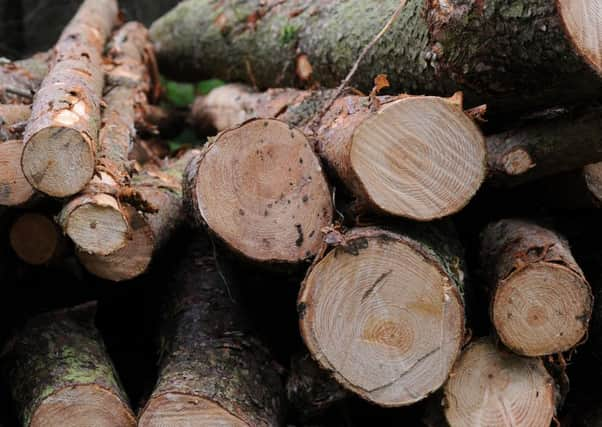Borders timber firm Oregon eyes double turnover


Oregon Timber Frame, which currently has 118 staff, said it had bought the former Co-op site, extending to some 56,000 square feet, in Selkirk next to its existing production site in the town.
The move comes as accounts for 2014 show that the firm achieved turnover of £15m, up from £13.9m in the prior year.
Advertisement
Hide AdAdvertisement
Hide AdPre-tax profit, however, was down year-on-year to about £507,000 from £627,000.
Planning permission has been given to convert the new site into manufacturing premises, and the company had said earlier this year when looking to change the building’s use that the move would create about 50 jobs.
But its proposals faced opposition from the town’s community council, which said it disagreed “fundamentally,” believing that the building could create an “eyesore” and hamper future development.
Oregon said the acquisition will enable the firm to “continue to grow to meet demand in the housing market”.
Chairman Roderick Lawson said: “The company is experiencing a high level of growth in the current year, and we are very pleased to have made this purchase, as it allows us to continue to increase capacity.
“The housing industry remains busy and besides expansion plans by our existing customers, there are UK housebuilders starting to use timber frame as an alternative to brick and block.
“With supply chains increasingly stretched by shortages of skills and materials on site, we believe that we can offer a dependable system and maintain service levels through controlled growth in the years ahead.”
Yet when writing in the annual accounts, Lawson was more cautious about the outlook, and the company’s ability to meet demand.
Advertisement
Hide AdAdvertisement
Hide AdHe said that despite a housing-market revival, “there remains uncertainty in forecasting demand from our clients”.
“Customers generally have improved finances but credit risk continues to exist,” he said.
He also looked at other challenges, saying: “Prices for timber and wood products are subject to fluctuations which can have a large effect on margins.
“There are industry shortages of skilled workers, which could limit the ability of the company to respond to demand and also have an adverse effect on margins.”
In its latest accounts, Oregon said its gross margin dropped from 16.5 per cent in 2013 to 15.4 per cent, and it attributed the fall to higher material prices, but said the figure is improving this year.
Its net margin fell in 2014 to 3.4 per cent from 4.5 per cent, brought down in part by higher overheads, and its average number of employees in 2014 grew by 14 year to reach 96.
The purchase of the site in Selkirk follows its opening in 2013 of a 18,000sq ft factory in the town, which it said would help boost its manufacturing potential by 50 per cent.
The Co-op store closed in July 2014 with the loss of 12 jobs.
Advertisement
Hide AdAdvertisement
Hide AdOregon’s joint managing director Peter Wade said before the firm bought the site that there was “no timescale” to create the extra jobs, as it would be determined by the progress of the market and the company.
Oregon was founded in 1998, and had group net assets of £1.8m at the end of last year.